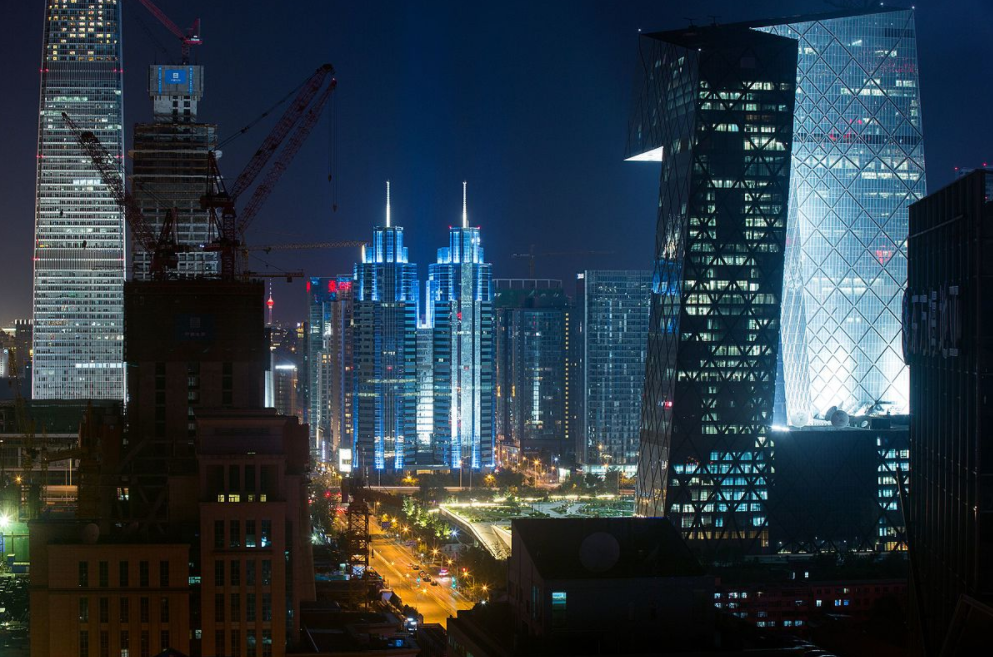According to the interlocutors of the agency, among the buildings to be sold are Renaissance Shanghai Pudong Hotel, Shanghai Yangtze International Enterprise Plaza and Shanghai HNA Tower.
Nine properties that HNA is going to sell in Beijing and Shanghai have a total value which amounts to 14 bln yuan ($ 2.2 billion), a source explained.
This will complement the recent sale of HNA assets worth about $ 13 bln.
HNA, a regional airline that turned into a growing conglomerate, as of June had assets of $ 190 billion (more than American Express Co.). In particular, it holds stakes in a number of companies, from Deutsche Bank to Hilton Worldwide Holdings Inc., and real estate in New York. According to sources from Bloomberg, HNA previously informed creditors that it would sell assets worth about 100 bln yuan in 2018 to pay off debts and prevent a liquidity crisis.
Besides, the conglomerate sells real estate for billions of dollars in London, New York, Hong Kong and Sydney. In addition to buildings, HNA also got rid or plans to sell shares in Red Lion Hotels Corp., Park Hotels & Resorts Inc., NH Hotel Group SA and Hilton Grand Vacations Inc. The group also plans IPO of Swissport International AG and Gategroup Holdings AG.
As previously reported, in mid-February, C-Quadrat, the controlling shareholder of HNA, reduced its stake in Deutsche Bank to about 8.8% from 9.9% at the beginning of the month and said no further share reduction is planned.
In December, following the results of the annual Central Conference on Economic Work, Chinese leaders said they would strive for victory in the fight against financial risks in the next three years.
After the 19th Congress of the Communist Party, held in October, China stepped up its efforts to combat risks in the financial system. In particular, the authorities introduced new rules to limit off-balance lending by banks and other financial intermediaries. Last year, the Chinese government also began to restrain some private conglomerates that actively acquired assets, including the HNA Group, Anbang Insurance Group and the Dalian Wanda Group. The authorities tried to avoid foreign transactions using borrowed funds.
Chairman of the China Banking Regulatory Commission promised to take action against those who built large financial conglomerates through complex ownership structures that often hide the true level of debt.
source: bloomberg.com
Nine properties that HNA is going to sell in Beijing and Shanghai have a total value which amounts to 14 bln yuan ($ 2.2 billion), a source explained.
This will complement the recent sale of HNA assets worth about $ 13 bln.
HNA, a regional airline that turned into a growing conglomerate, as of June had assets of $ 190 billion (more than American Express Co.). In particular, it holds stakes in a number of companies, from Deutsche Bank to Hilton Worldwide Holdings Inc., and real estate in New York. According to sources from Bloomberg, HNA previously informed creditors that it would sell assets worth about 100 bln yuan in 2018 to pay off debts and prevent a liquidity crisis.
Besides, the conglomerate sells real estate for billions of dollars in London, New York, Hong Kong and Sydney. In addition to buildings, HNA also got rid or plans to sell shares in Red Lion Hotels Corp., Park Hotels & Resorts Inc., NH Hotel Group SA and Hilton Grand Vacations Inc. The group also plans IPO of Swissport International AG and Gategroup Holdings AG.
As previously reported, in mid-February, C-Quadrat, the controlling shareholder of HNA, reduced its stake in Deutsche Bank to about 8.8% from 9.9% at the beginning of the month and said no further share reduction is planned.
In December, following the results of the annual Central Conference on Economic Work, Chinese leaders said they would strive for victory in the fight against financial risks in the next three years.
After the 19th Congress of the Communist Party, held in October, China stepped up its efforts to combat risks in the financial system. In particular, the authorities introduced new rules to limit off-balance lending by banks and other financial intermediaries. Last year, the Chinese government also began to restrain some private conglomerates that actively acquired assets, including the HNA Group, Anbang Insurance Group and the Dalian Wanda Group. The authorities tried to avoid foreign transactions using borrowed funds.
Chairman of the China Banking Regulatory Commission promised to take action against those who built large financial conglomerates through complex ownership structures that often hide the true level of debt.
source: bloomberg.com





